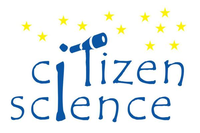Scaling up Citizen Science: What are the factors associated with increased reach and how to lever them to achieve impact
The rapid pace of technology advancements, the open innovation paradigm, and the ubiquity of high-speed connectivity, greatly facilitate access to information to individuals, increasing their opportunities to achieve greater emancipation and empowerment. This provides new opportunities for widening participation in scientific research and policy, thus opening a myriad of avenues driving a paradigm shift across fields and disciplines, including the strengthening of Citizen Science. Nowadays, the application of Citizen Science principles spans across several scientific disciplines, covering different geographical scales. While the interdisciplinary approach taken so far has shown significant results and findings, the current situation depicts a wide range of projects that are heavily context-dependent and where the learning outcomes of pilots are very much situated within the specific areas in which these projects are implemented. There is little evidence on how to foster the spread and scalability in Citizen Science. Furthermore, the Citizen Science community currently lacks a general agreement on what these terms mean, entail and how these can be approached. To address these issues, we developed a theoretically grounded framework to unbundle the meaning of scaling and spreading in Citizen Science. In this framework, we defined nine constructs that represent the enablers of these complex phenomena. We then validated, enriched, and instantiated this framework through four qualitative case studies of, diverse, successful examples of scaling and spreading in Citizen Science. The framework and the rich experiences allow formulating four theoretically and empirically grounded scaling scenarios. We propose the framework and the in-depth case studies as the main contribution from this report. We hope to stimulate future research to further refine our understanding of the important, complex and multifaceted phenomena of scaling and spreading in Citizen Science. The framework also proposes a structured mindset for practitioners that either want to ideate and start a new Citizen Science intervention that is scalable-by-design, or for those that are interested in assessing the scalability potential of an existing initiative.
Publish information
| Authors: | The Conservation Volunteers; J Tweddle; L Robinson; H Roy; M Pocock; Vincia Holloman; iNaturalist; Fermin Serrano; Jesús Clemente; Mari Carmen Ibañez; Francisco Sanz; Alfonso Tarancón; Laude Guardia; David Iñiguez; Alejandro Rivero; Gonzalo Ruiz; Alfredo Ferrer; Maite Pelacho; Pilar Perla; Socientize project; Lucía García Sánchez; Alejandro Sánchez de Miguel; María Diez Ojeda; Ayla Márcia Cordeiro Bizerra; Miguel Ángel Queiruga Dios; Daniel Bruno Collados; Mari Carmen Ibáñez Hernández; Daniel Lisbona Rubira; Anne Turbé; Jorge Barba; Chrisa Tsinaraki; Shailendra Mudgal; Lucy D. Robinson; Jose-Miguel Rubio; Sven Schade; Margaret Gold; Eduardo Lostal; David Gómez; Antonio Lafuente; Several authors; Juan Freire; Dörler; Daniel; Walter; Theresa; Morawetz; Linde; Heigk.Florian; Woodland Trust; DEFRA; Anna Petschner; Liisa Varumo; Riikka Paloniemi; Eszter Kelemen; Juliette Young; Iida-Maria Koskela; Tina Philips; Norman Porticella; Mark Constas; Rick Bonney; Lisa Pettibone; Katrin Vohland; Aletta Bonn; Anett Richter; Wilhelm Bauhus; Birgit Behrisch; Rainer Borcherding; Miriam Brandt; François Bry; Daniel Dörler; Ingrid Elbertse; Falko Glöckler; Claudia Göbel; Susanne Hecker; Florian Heigl; Michael Herdick; Sarah Kiefer; Thekla Kluttig; Elisabeth Kühn; Katarina Kühn; Silke Oldorff; Kristin Oswald; Oliver Röller; Clemens Schefels; Anne Schierenberg; Willi Scholz; Anke Schumann; Andrea Sieber; René Smolarski; Klaus Tochtermann; Wolfgang Wende; David Ziegler; Caren B. Cooper; Janis Dickinson; Steve Kelling; Tina Phillips; Kenneth V. Rosenberg; Jennifer Shirk; Anita Weatherby; Jodey Peyton; Steffen Fritz; Linda See; Tyler Carlson; Mordechai (Muki) Haklay; Jessie L. Oliver; Dilek Fraisl; Rosy Mondardini; Martin Brocklehurst; Lea A. Shanley; Uta Wehn; Tommaso Abrate; Janet Anstee; Stephan Arnold; Matthew Billot; Jillian Campbell; Jessica Espey; Gerid Hager; Shan He; Libby Hepburn; Angel Hsu; Deborah Long; Joan Masó; Ian McCallum; Maina Muniafu; Inian Moorthy; Michael Obersteiner; Alison J. Parker; Maike Weisspflug; Sarah West; Duncan C. McKinley; Abe J. Miller-Rushing; Heidi L. Ballard; Hutch Brown; Susan C. Cook-Patton; Daniel M. Evans; Rebecca A. French; Julia K. Parrish; Tina B. Phillips; Sean F. Ryan; Jennifer L. Shirk; Kristine F. Stepenuck; Jake F. Weltzin; Andrea Wiggins; Owen D. Boyle; Russell D. Briggs; Stuart F. Chapin III; David A. Hewitt; Peter W. Preuss; Michael A. Soukup; Project "Social technologies for Developing Collective Intelligence in Networked Society". Mykolas Romeris University.; SciStarter; Melissa Eitzel; UCL; Rosa Arias Álvarez; Maite Pelacho López; International Institute for Applied Systems Analysis (IIASA) Center for Earth Observation and Citizen Science; M.C. Postles; S.E. West; J. Sewell; Living Knowledge; Extreme Citizen Science group; WeObserve Project; Anne Bowser; Metis Meloche; Harvard Law School; Emmett Environmental Law and Policy Clinic; A. Bonn; A. Richter; K. Vohland; L. Pettibone; M. Brandt; R. Feldmann; C. Goebel; C. Grefe; S. Hecker; L. Hennen; H. Hofer; S. Klotz; T.Kluttig; J. Krause; K.Küsel; C.Liedtke; A.Mahla; V.Neumeier; M.Premke-Kraus; O.Röller; L.Schaffler; B.Schmalzbauer; U.Scheindewind; U.Schumann; J.Settele; K.Tochtermann; K.Tockner; J.Vogel; W.Volkmann; S.Kiefer; M.C.Rillig; H.Von Unger; D.Walter; M.Weisskopf; C.Wirth; T.Witt; D.Wolst; D.Ziegler; Marie Grimm; Bori Mészáros; Hanna Carlson; Katalin Mund; Pamela Bartar; Robert Brodschneider; Marika Cieslinski; Marlene Ernst; Irmgard Krisai - Greilhuber; Jennifer Hatlauf; Susanne Hecker; Thomas Hübner; Barbara Kieslinger; Peter Kraker; Thomas Krennert; Gerit Oberraufner; Katharina T. Paul; Brigitte Tiefenthaler; Michela Vignoli; Theresa Walter; Ronald Würflinger; Maria Zacharias; The International Science Shop Networ; SPOTTERON; Philipp Hummer; Marisa Ponti; Massima Craglio; Floris'Tic; Carole Paleco; Justine Jacquemin; M Haklay; GoNano; Natalia Pirani Ghilardi-Lopes; A Motion; B Balázs; B Kieslinger; B Greshake; C Nold; D Dörler; Daniel; D Fraisl; D Riemenschneider; F Heigl; Florian; F Brounéus; G Hager; K Heuer; K Wagenknecht; K Vohland; L Shanley; L Deveaux; Lionel; L Ceccaroni; M Weißpflug; M Gold; M Mazzonetto; M Mačiulienė; S Woods; S Luna; S Hecker; T Schaefer; T Woods; U Wehn; P Rickles; C Ellul; A Skarlatidou; J Campbell; L See; J Wardlaw; I Moorthy; R Arias; J Piera; J Oliver; J Maso; M Penker; S Fritz; A Richter; A Bonn; L Goudeseune; H Eggermont; Q Groom; X Le Roux; C Paleco; C van Noordwijk; Giovanni Maccani; Margriet Goossensen; Valeria Righi; Javier Creus; Mara Balestrini; |
| Publisher: | Publications Office of the European Union |
| Year of publication: | 2020 |
| License: | https://creativecommons.org/licenses/by/4.0/ |
| DOI: | 10.2760/00926 |
